The World Council for Health (WCH) works with experts to develop legal briefs that present the lawful position on human rights issues and recommendations for asserting and protecting these rights. These legal briefs are written in a way that can be understood by specialised and non-specialised audiences and can be used in education, advocacy, and law initiatives such as investigations, inquiries, and litigation.
If you support our work defending our rights through legal briefs, please contribute to help us reach more people around the world and support the development of more public interest legal briefs.
Download an article-by-article compilation of proposed amendments to the International Health Regulations below.
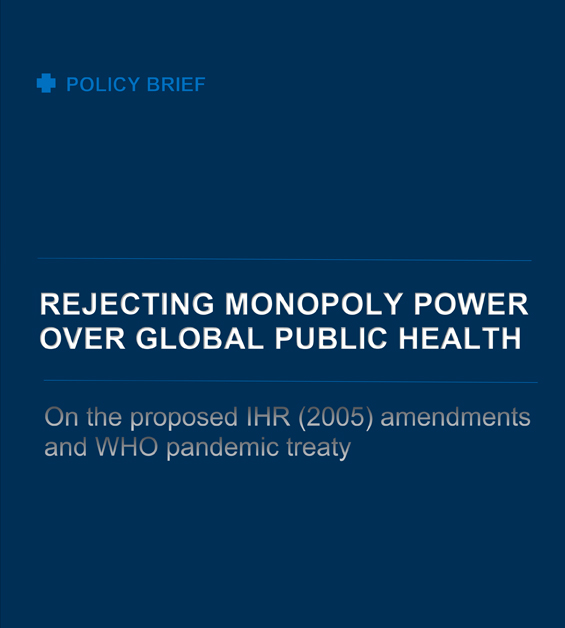
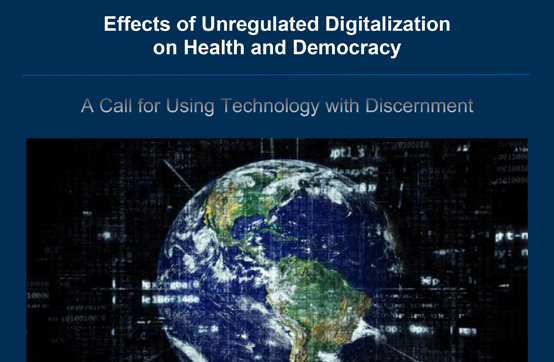
A Call for Using Technology with Discernment
The Fourth Industrial Revolution and the digital transformation include a number of beneficial and harmful innovations, the latter presenting a severe threat to health, essential human rights and democracy that must not be underestimated. The public and decision-makers need to differentiate and be careful what they welcome and what they oppose in the name of digitalization. This in-depth WCH policy brief showcases aspects of the process of digitalization that negatively impact (public) health, essential human rights and democracy. It discusses radiation-based wireless technology (including 5G), the impacts of excessive or misguided use of digital technology on mental health and development as well as the inhumane conditions under which some technologies are being produced. It further explains the threats emanating from the surveillance economy, Digital ID, a Central Bank Digital Currency (CBDC) and the idea of a cashless society. The document contains policy recommendations to effectively address these issues and avert harm. Further, the document is meant to empower the reader to make informed decisions in their own everyday life when interacting with specific technologies and the effects of the Fourth Industrial Revolution.
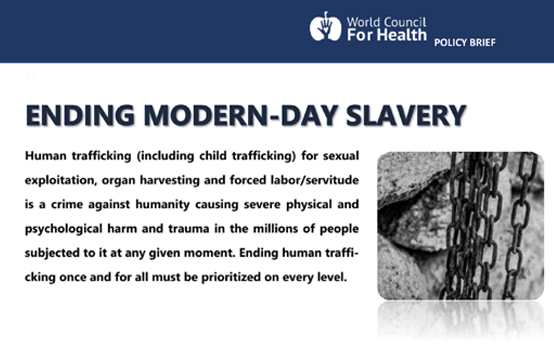
Ending Modern-Day Slavery
Human trafficking (including child trafficking) for sexual exploitation, organ harvesting and forced labor/servitude is a crime against humanity causing severe physical and psychological harm and trauma in the millions of people subjected to it at any given moment. Ending human trafficking once and for all must be prioritized on every level. This policy document serves as a fact-based introduction to the topic of human trafficking and modern-day slavery and outlines why the trafficking of persons for exploitation is also a public health issue. The document proposes societal measures and provides policy recommendations to end this crime once and for all.
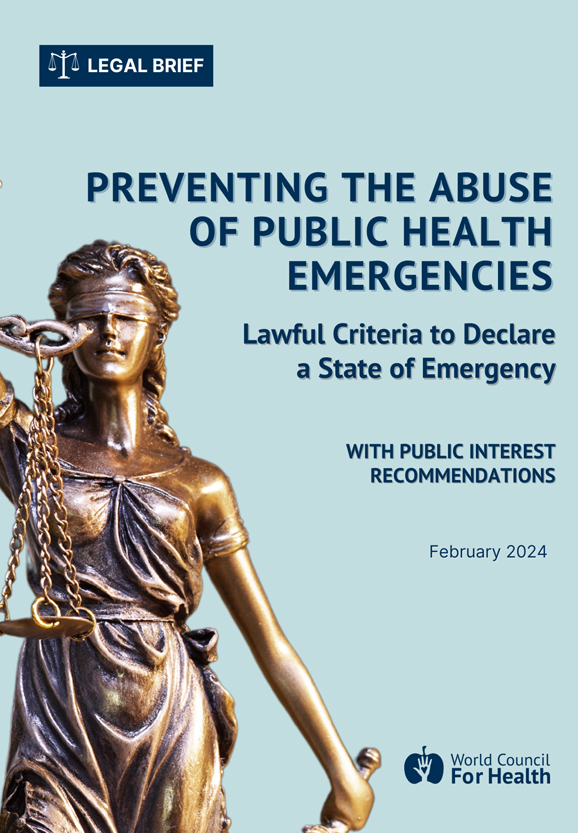
Lawful Criteria to Declare a State of Emergency.
Many consider Covid-19 to have been a worldwide ‘Trojan Horse’ event that enabled human rights and freedoms to be trampled, dangerous medical interventions to be normalised, and an unprecedented transfer of wealth to take place from ordinary people to the super-rich. There is deep concern too that this was just a trial run, and that the immanent promulgation of the World Health Organization’s ‘Pandemic Treaty’ and amended International Health Regulations will take these tyrannical measures to an entirely different level. In response to these concerns, the World Council for Health has published a Legal Brief on Preventing the Abuse of Public Health Emergencies. This document explains how governments used the declaration of an unjustifiable state of emergency as a legal instrument to deny people their basic human rights and freedoms, and to grant themselves extraordinary powers.
Dr Arthur Firstenberg (1950-2025), a pioneering researcher in the field of electromagnetic fields (EMF) and their impact on health, dedicated decades of his life to uncovering the profound effects of EMF radiation on living organisms. His groundbreaking work, often considered ahead of its time, meticulously synthesised scientific evidence to challenge conventional perspectives on technology and health.
World Council for Health is honoured to present the conclusions of his work as a vital reference to inspire important and overdue discussions about the implications of EMF exposure in our modern world.
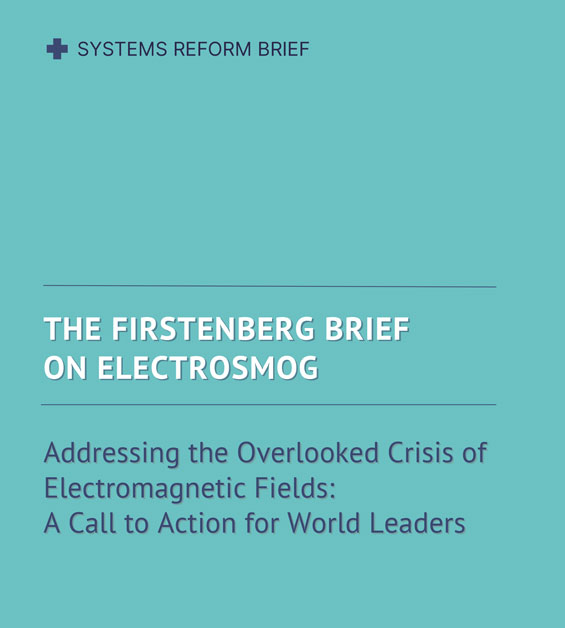
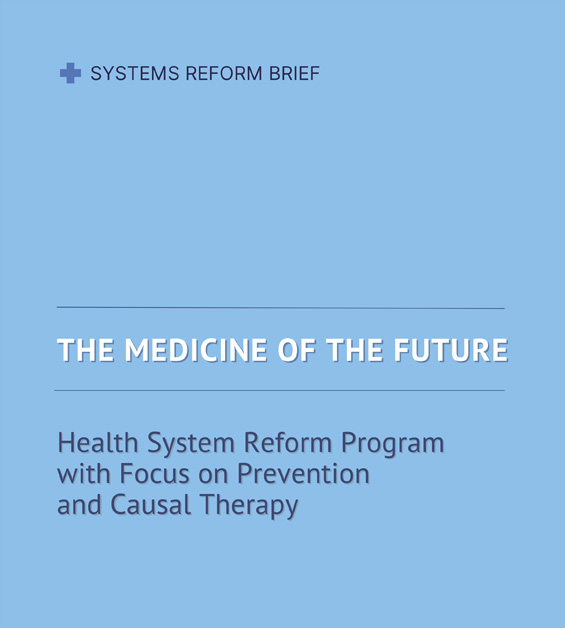
World Council for Health is proud to introduce the framework of the future of medicine by Prof Michael Nehls and Christof Plothe DO.
Modern medicine has lost its way. What began as a sacred healing art, rooted in Hippocrates’ wisdom that “food is medicine” and health stems from harmony with nature, has devolved into a profit-driven disease management scheme. We are trapped in a one-way street to chronic illness because the system ignores the most fundamental truth: Health cannot be manufactured in a lab or packaged into a pill.
We advocate for a Better Way:
The future of medicine must be decentralized, individualized, and rooted in nature, or it will collapse under the weight of its own contradictions.
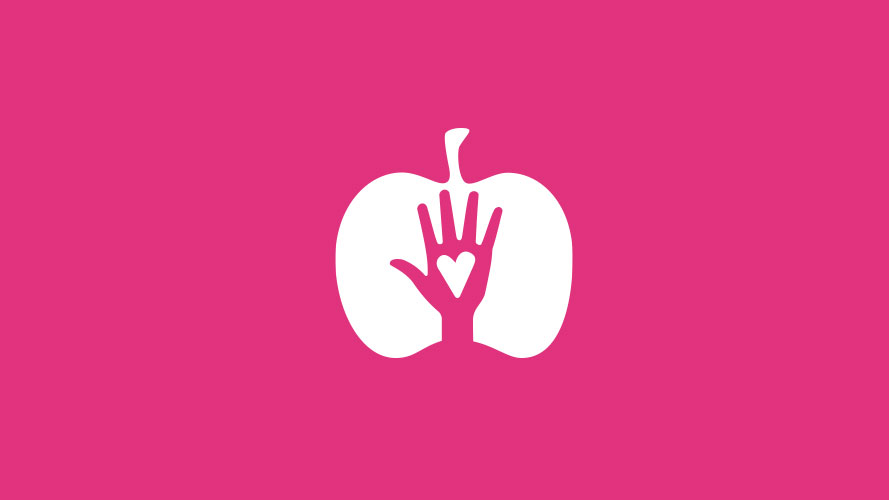
Welcome to our new website, We have new content being added all the time, Sign up to receive regular updates.
Gmail has blocked our newsletter send.
Please use a different email address if possible.